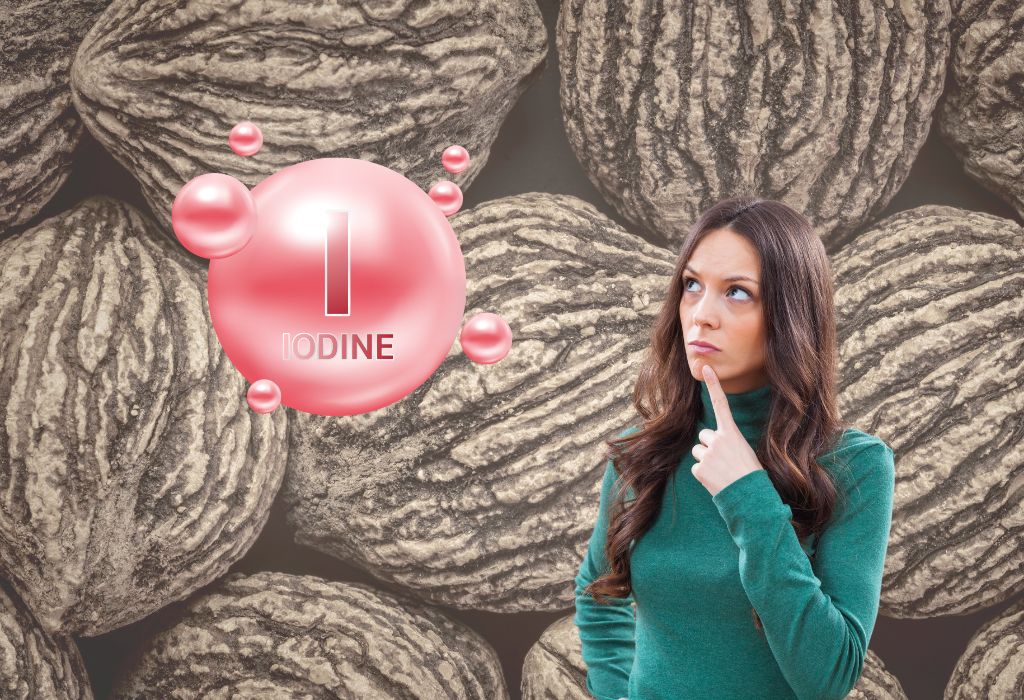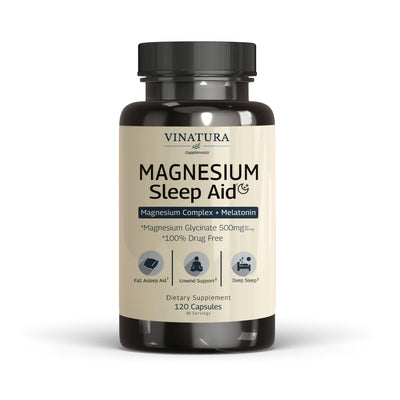
How To Make Iodine From Black Walnuts?
Iodine, especially that found in black walnuts, is an essential mineral crucial for human thyroid and nervous system health.
Despite its importance, many people suffer from significant iodine deficiencies without realizing it until serious health problems arise. Therefore, this article will delve into how to extract iodine from black walnuts.
Before exploring further, please read the disclaimer located at the end of this webpage.
Key Takeaways
- Black walnuts contain high levels of natural iodine, providing an essential nutrient for the body.
- Extracting iodine from black walnuts can be done easily at home.
- Iodine from black walnuts positively impacts thyroid, immune, and nervous system health.
Do Black Walnuts Contain Iodine?
In addition to vitamins like B and E and lipids, black walnuts have hulls particularly rich in iodine. Various extraction methods have demonstrated that black walnut hulls can yield iodine levels up to 1634 mg/g of hull. This impressive concentration is derived from non-salt sources [1].
The black walnut (Juglans nigra) is thus particularly iodine-rich, commonly used in traditional medicine, and included in many diets for its high nutritional value and unique health benefits.
How To Make Iodine From Black Walnuts?
On the Internet, there are a few methods to obtain iodine from black walnuts, including the following basic steps:
- Prepare about 300g of fresh black walnuts with their hulls.
- Score the hulls with a knife and soak the walnuts in hot water (about 158°F) for 15-20 minutes to let the nutrients infuse the water.
- Remove the walnuts and use the soaking water as a natural iodine supplement.
However, this method provides only relative effectiveness with a minimal iodine concentration and may even pose risks if contaminants remain on the walnut hulls.
A safer and more convenient option is to use pre-extracted products from supplement brands with a more concentrated and quality-assured iodine content.
Black Walnut Iodine Content
The iodine concentration in black walnuts varies, typically ranging from 1000-1600 mg/g, depending on growth, harvest, and storage conditions. An inconsistent extraction process may also reduce the iodine and other nutrients.
In reality, while the iodine content in black walnut hulls provides a valuable natural supplement, it cannot replace primary sources like iodized salt but remains a beneficial addition, especially given that dietary iodine intake is not always adequately maintained.
Benefits Of Black Walnut Iodine
Supports Thyroid Function
Iodine is essential for thyroid health. Iodine deficiency can cause severe issues such as reduced thyroid function, stunted physical growth, decreased mobility, and conditions like hyperthyroidism or autoimmune thyroid diseases [2]. Thus, iodine is an irreplaceable nutrient for supporting thyroid function.
Supports Brain Development
Iodine is also vital for brain development. A study on fetal brain development indicated: “All extents of iodine deficiency (based on iodine intake (μg/d); mild 50–99, moderate 20–49, severe > 20) affect the thyroid function of the mother and neonate, and the mental development of the child.
The damage increases with the extent of the deficiency, with overt endemic cretinism as the severest consequence. This syndrome combines irreversible mental retardation, neurological damage, and thyroid failure” [3].
Boosts The Immune System

Research has shown that iodine supplementation leads to increased T-lymphocyte activity and cellular immunity. T-lymphocytes are a type of white blood cell in the lymphocyte family crucial to the immune system [4].
Therefore, iodine supplementation enhances the body’s immune defenses, enabling it to better combat harmful external factors.
Regulates Hormone Levels In The Body
Iodine supplementation is closely linked to hormones like triiodothyronine (T3) and thyroxine (T4), which impact numerous bodily functions, including thyroid activity, metabolism, and physical health [5]. Thus, iodine supplementation to balance these hormones helps.
Reduces The Risk Of Thyroid Cancer
Animal studies have shown a significant increase in thyroid carcinoma following prolonged iodine deficiency, leading to excessive thyrotropin stimulation and possibly other growth factors [6]. Thus, adequate iodine intake clearly reduces the risk of thyroid cancer.

How To Use Black Walnuts To Absorb Iodine?
With the method suggested above, there are various ways to absorb iodine from black walnuts. DIY extraction is a spontaneous, handmade process but does not guarantee nutrient levels.
Therefore, you can supplement with black walnut tea made at home or, more conveniently, with dietary supplements available for online purchase. Remember to consult healthcare professionals for proper dosage.
Conclusion
In conclusion, black walnuts are an excellent natural iodine source, rich in iodine and other beneficial nutrients. However, to ensure quality and adequate intake, seek reliable supplement sources and combine them with a healthy diet and lifestyle. These factors will maximize the benefits of black walnuts!
References
- [1] Yang, Xiaomin, et al. “An Activated Carbon From Walnut Shell for Dynamic Capture of High Concentration Gaseous Iodine.” Chemical Engineering Journal, vol. 454, Nov. 2022, p. 140365. https://doi.org/10.1016/j.cej.2022.140365.
- [2] Chung, Hye Rim. “Iodine and Thyroid Function.” Annals of Pediatric Endocrinology & Metabolism, vol. 19, no. 1, Jan. 2014, p. 8. https://doi.org/10.6065/apem.2014.19.1.8.
- [3] Proceedings of the Nutrition Society, Volume 59 , Issue 1 , February 2000 , pp. 75 - 79 DOI: https://doi.org/10.1017/S0029665100000094
- [4] Chen, Xiaoyi, et al. “Effect of Excessive Iodine on Immune Function of Lymphocytes and Intervention With Selenium.” Journal of Huazhong University of Science and Technology [Medical Sciences], vol. 27, no. 4, Aug. 2007, pp. 422–25. https://doi.org/10.1007/s11596-007-0418-1.
- [5] Obregon, Maria-Jesus, et al. “The Effects of Iodine Deficiency on Thyroid Hormone Deiodination.” Thyroid, vol. 15, no. 8, Aug. 2005, pp. 917–29. https://doi.org/10.1089/thy.2005.15.917.
- [6] Feldt-Rasmussen, U. “Iodine and Cancer.” Thyroid, vol. 11, no. 5, May 2001, pp. 483–86. https://doi.org/10.1089/105072501300176435.
Author

Product Disclaimer
Including an ingredient or study does not evaluate, endorse, or recommend any Vinatura product or any third-party product. Some ingredients discussed may not be used in any Vinatura product.
The content of the articles has not been evaluated by the Food and Drug Administration (FDA) and is not intended to promote or endorse any specific product. Any products sold on this website are not intended to diagnose, treat, cure, or prevent any disease.
Opinions and Endorsements
Any claims, statements, or opinions expressed in the articles are those of the author(s) and do not necessarily reflect the views or opinions of the manufacturers of the dietary supplement products. The products sold on this website are separate from the content of the articles and are not directly endorsed or associated with the information presented here.
Liability Disclaimer
The author(s) of the articles, website, and manufacturers of the dietary supplement products do not assume any liability for any potential consequences arising from the use of the information provided in the articles. Ingredient effects, dosages, and safety vary by individual, formulation, and context; some ingredients interact with medications or may be unsuitable during pregnancy or lactation. It is recommended that individuals consult with a qualified healthcare professional before making any dietary or lifestyle changes, including the use of dietary supplements.
Product Usage
Please refer to the product labels and packaging for specific usage instructions and guidelines for the dietary supplement products sold on this website.
Customer Support
For any concerns or questions regarding the dietary supplement products, please contact our customer support team, who will be more than happy to assist you.





Leave a Comment
Be the first to comment.
What do you think?